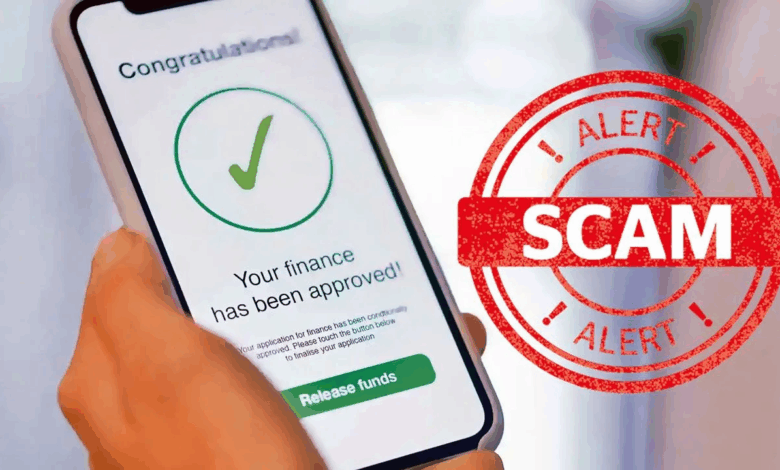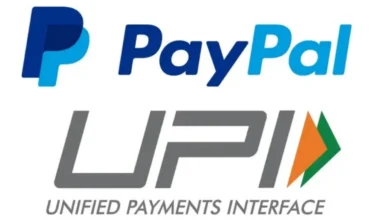Inside the APK Scam: How Financial Fraud Is Performed Through Fake Apps

Smartphones make our lives easier every day. We use them for everything, from ordering food to managing money. This makes mobile apps a big part of our lives, even for important financial tasks. But with this ease comes a hidden danger: APK scams. These fake apps look real, but they hide bad intentions.
An APK file is like a setup program for an Android phone. It holds all the parts an app needs to install and run. Normally, you get apps from official stores. But scammers trick you into downloading harmful APKs from other places. They use clever ways to get these fake apps onto your device.
The risks of falling for these scams are huge. You could lose your savings, and your private information might get stolen. Understanding how these fake apps work is your best defense. This guide will show you how these frauds happen and what you can do to stay safe.
What Are Fake APK Apps?
Understanding APK Files
An APK, or Android Application Package, is the file format for Android apps. Think of it as a .exe file for your computer. You use an APK to install apps on Android phones. Getting an APK directly from a website that isn’t an official app store like Google Play is much riskier. These unofficial files might be changed to include harmful code.
The Deceptive Facade
Fake apps are made to look just like real ones. They often copy popular app logos, names, and even the descriptions you’d see in an app store. This makes them seem trustworthy at first glance. Scammers often target apps for banking, cryptocurrency, or online shopping. They might also mimic utility apps, like a flashlight or a cleaner program. These are apps many people use, making them perfect targets for fraud.
The Download Journey
Users often run into fake APKs through various tricks. You might see a malicious ad pop up online. Sometimes, a fake website looks like a real bank or shopping site, offering a download link. Social media posts and direct text messages (SMS) can also carry links to these dangerous files. These links promise something good, like a special deal or a necessary update, but they lead to trouble.
The Mechanics of the APK Scam
Information Gathering
Once a fake app is on your phone, it starts working against you. These apps are designed to collect your private data. They can grab your login names and passwords for online accounts. Your bank details, including account numbers, are also at risk. They might even steal one-time passcodes (OTPs) sent to your phone. Personal identification information, like your address or birth date, can be taken too.
Financial Fraud Techniques
Scammers use many ways to steal your money through these fake apps.
- Unauthorized Transactions: Some fake apps can make bank transfers or online purchases without you knowing. They might use your stored payment info or trick you into giving approval.
- Phishing for Credentials: The app might create fake login screens that look like your bank’s. When you type in your username and password, the app records them. Scammers then use these details to log into your real bank account.
- Subscription Traps: You might find yourself signed up for expensive monthly services. These apps often enroll you without clear consent. The charges keep coming, sometimes for things you never wanted.
- Cryptocurrency Theft: Fake crypto wallet or trading apps are common. They promise big returns or a safe place for your digital money. Instead, they just steal your cryptocurrency as soon as you transfer it.
Data Harvesting for Identity Theft
The data collected by fake apps goes beyond direct money theft. Your personal information, like names, addresses, and birth dates, is very valuable. Scammers can sell this data on illegal online marketplaces, known as the dark web. Other criminals then buy this information to commit identity theft, opening new accounts in your name or taking out loans.
Real-World Impact and Statistics
Case Studies of Victims
Many people have suffered from these cunning scams. In India, there have been numerous reports of loan app scams. Victims download what they think is a legitimate loan application. The app then drains their bank accounts or demands huge, unfair repayments. Sometimes, these apps even threaten victims with blackmail using their phone’s contact list or photos. Others have lost their savings to fake investment apps. These apps show fake profits, encouraging users to put in more money, only to disappear with all the funds.
Scale of the Problem
The problem of fake app scams is growing globally. Reports suggest that millions of dollars are lost each year to mobile application fraud. These figures highlight how widespread and damaging these scams have become. Many more cases go unreported, making the true scale even larger.
Expert Insights
Cybersecurity experts warn that these scams are becoming more advanced. They often note that fake apps are getting better at avoiding detection. One expert mentioned that attackers are constantly finding new ways to trick users. Law enforcement officials stress that user awareness is a key defense. They advise everyone to be careful about what they download.
Protecting Yourself from Fake APK Scams
Recognizing Red Flags
Spotting a fake app can save you a lot of trouble. Watch for these warning signs:
- Source Verification: Always download apps only from official app stores. Google Play Store for Android and Apple App Store for iOS are the safest places. Avoid links from emails, texts, or unknown websites.
- App Permissions: Pay close attention to what permissions an app requests. Does a flashlight app really need access to your contacts or messages? If an app asks for too many permissions, it’s a big red flag.
- Reviews and Ratings: Check app store reviews carefully. Look for many generic or highly similar positive reviews. This can mean they are fake. Also, a very new app with tons of perfect reviews might be suspicious.
- Unsolicited Downloads: Never download an APK file from an unexpected message or link. If someone sends you a link to an app you didn’t ask for, it’s best to ignore it.
Secure Downloading Practices
Keeping your phone safe requires some smart habits.
- Enable Play Protect: Make sure Google Play Protect is active on your Android device. It scans your apps for harmful software. You can find this setting in your Google Play Store menu.
- Antivirus Software: Use a well-known mobile security app on your phone. These apps can help detect and remove malicious software. Choose a reputable brand for the best protection.
- Device Settings: Most Android phones have a setting called “Install unknown apps.” Disable this for all sources except official app stores. This prevents apps from being installed without your knowledge.
What to Do If You Suspect a Scam
If you think you’ve downloaded a fake app or lost money, act quickly.
- Uninstall Immediately: Delete the suspicious app from your phone right away. This stops it from collecting more data or causing more harm.
- Change Passwords: Change passwords for any accounts that might have been affected. This includes banking, email, and social media. If you use the same password for other sites, change those too.
- Contact Financial Institutions: Call your bank or credit card company at once. Explain what happened. They can help stop unauthorized transactions and secure your accounts.
- Report to App Stores/Authorities: Report the malicious app to Google or Apple. Also, inform your local police or cybersecurity agencies. Your report can help protect others from the same scam.
Conclusion
APK scams pose a serious threat to our financial well-being and personal data. These sophisticated frauds trick users with fake apps, leading to stolen money and identity theft. The dangers are real, from unauthorized bank transfers to stolen cryptocurrencies.
Your best defense against these scams is knowledge and caution. By understanding how fake apps work, you can spot the warning signs. Paying attention to app permissions, checking sources, and using official app stores are crucial steps.
Take action today to protect yourself and others. Always download apps safely. Share this information with friends and family to keep them informed. In the digital world, staying aware and careful is the smartest move you can make.




